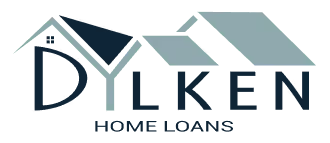FHA vs Conventional Loans Texas: Pros, Cons, and Smart Mortgage Choices
Most homebuyers in Texas don’t purchase a house outright with cash. Instead, they rely on a mortgage to finance their dream of homeownership. The type of loan you choose can make a big difference in how much you pay over time and how easy it is to qualify.
The two most common options are FHA loans and conventional loans. Each comes with unique benefits and challenges, and understanding their differences will help you make the best choice for your financial situation.
What Is an FHA Loan?
An FHA loan is a mortgage insured by the Federal Housing Administration. The government backing makes it less risky for lenders, which allows them to offer more flexible requirements.
- Down payment as low as 3.5% (with credit score 580+)
- Credit scores as low as 500 may qualify with a larger down payment
- Fixed-rate or adjustable-rate terms available
Because of these features, FHA loans are especially popular among first-time Texas buyers or anyone with limited savings or lower credit.
What Is a Conventional Loan?
A conventional loan is not insured by a government agency. Instead, it’s provided directly by private lenders. These loans usually require stronger borrower qualifications, but they can be less expensive overall for buyers who qualify.
- Minimum credit score of about 620
- Down payments starting at 3% (though 20% avoids PMI)
- Options for both conforming and non-conforming (jumbo) loans
For buyers with stable income, higher credit, and savings for a larger down payment, a conventional loan can often be the smarter financial move.
FHA vs Conventional Loans: Key Differences
Credit Score
- FHA loan: Allows lower scores (500–579 with 10% down, 580+ with 3.5% down).
- Conventional loan: Requires higher scores, typically 620 or above.
Texas takeaway: FHA loans are better for buyers working on their credit, while conventional loans reward higher credit scores with better rates.
Down Payment
- FHA loan: 3.5% minimum if credit is 580+.
- Conventional loan: Often 3%–5%, but 20% avoids private mortgage insurance (PMI).
Texas takeaway: If you want to avoid PMI, a conventional loan with 20% down is ideal. FHA loans make it possible to buy sooner with less cash.
Interest Rates
- FHA loan: Often slightly lower rates due to government backing.
- Conventional loan: Rates depend more on credit score, down payment, and debt-to-income ratio.
Texas takeaway: FHA loans may look cheaper upfront, but ongoing mortgage insurance costs can make conventional loans more affordable long term.
Appraisal Process
- FHA appraisal: Stricter guidelines—homes must meet safety and livability standards.
- Conventional appraisal: Focuses mainly on fair market value.
Texas takeaway: In competitive markets like Austin, sellers sometimes prefer buyers with conventional financing because the appraisal process is smoother.
Loan Limits
- Conventional loan (2025): $806,500 in most counties, up to $1,209,750 in high-cost areas.
- FHA loan (2025): $524,225 in lower-cost counties, up to $1,209,750 in high-cost counties such as parts of Texas.
Mortgage Insurance
- FHA loan: Requires both upfront and annual mortgage insurance, which may last for the life of the loan.
- Conventional loan: PMI required if down payment is less than 20%, but it can be cancelled once you build enough equity.
When a Conventional Loan Makes Sense in Texas
- You have a credit score above 620
- You can put down at least 5% (20% to avoid PMI)
- You want lower long-term costs and flexibility with jumbo loans
When an FHA Loan Makes Sense in Texas
- Your credit score is below 620
- You don’t have much saved for a down payment
- You need more relaxed debt-to-income requirements
FAQ: FHA vs Conventional Loans in Texas
Which loan is better in Texas—FHA or conventional?
It depends on your profile. FHA is great for buyers with lower credit or savings, while conventional works better if you have stronger finances and want to save on insurance costs.
Why do Texas sellers prefer conventional loans?
Because FHA appraisals are stricter, sellers often see conventional loans as more likely to close smoothly.
Which loan is more affordable long term?
If you qualify, conventional loans often cost less over time since PMI can be removed, while FHA mortgage insurance usually lasts for the loan’s life.
Can I switch from FHA to conventional later?
Yes. Many Texas buyers refinance into a conventional loan once they improve credit and equity, helping them drop FHA mortgage insurance.
The Bottom Line
Both FHA and conventional loans open doors to homeownership in Texas. Your best choice depends on your credit, income, and how much you can afford for a down payment. FHA loans make qualifying easier, while conventional loans may save you money over time.
Ready to explore your options? Talk with the experts at Dylken Home Loans to find the mortgage that fits your Texas homebuying goals.
Get a free instant rate quote
Take a first step towards your dream home

Free & non binding

No documents required

No impact on credit score

No hidden costs
.avif)



.svg)

.svg)
